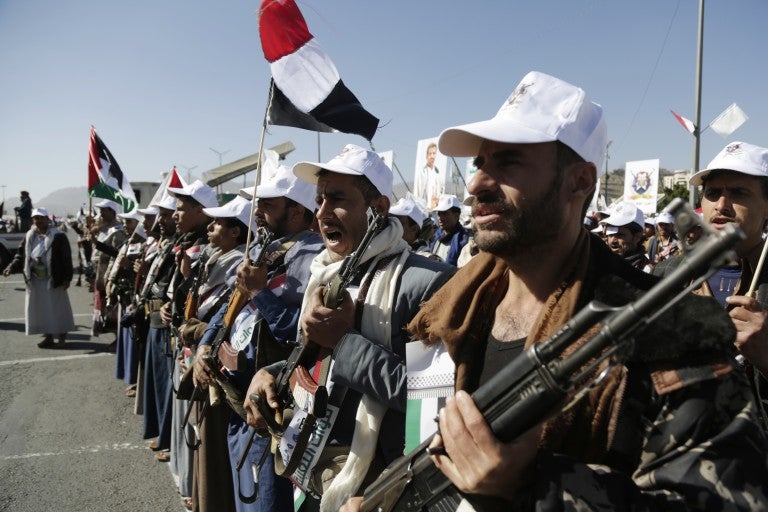May 4, 2020 — Paris, France
This piece originally appeared in French in La Regle du Jeu.
Early Thursday morning, Germany announced its historic decision to designate Hezbollah a terrorist organization. Shortly thereafter, Interior Minister Horst Seehofer announced that operations had been carried out to arrest suspected Hezbollah members all over the country. With this decision, Berlin is following in the footsteps of London, which took the same action just over a year ago. The European Union, notably with the support of France, stubbornly insists on making a distinction between Hezbollah’s "political wing" and "military wing", designating only the latter as terrorist.
This artificial distinction, stemming from an analytical error acknowledged by Hezbollah leaders themselves, is not without tangible consequences for Europe. It gives the terrorist organization freedom to pursue its criminal activities on the continent with impunity.
Hezbollah's activities on European soil include fundraising, recruitment, and terrorist acts. In 2012, a terrorist attack in Burgas, Bulgaria, claimed the lives of six people. After more than six months of investigation, the Bulgarian authorities clearly identified Hezbollah as the sponsor and organizer of this heinous act. In 2013, a Cypriot court found an individual guilty of planning terrorist attacks in Cyprus who admitted to being a member of Hezbollah. And in 2019, a large cache of explosives was discovered in the United Kingdom.
Indeed, it should not be forgotten that Hezbollah was the first terrorist group to introduce the practice of suicide bombing in the Middle East, which it has repeatedly used against civilian, political, and military targets, in Israel, in Arab countries and in others around the world. Hezbollah has kidnapped foreigners and held them hostage for years. It has close links with other terrorist organizations and works closely with drug cartels to finance its terrorist activities. The Iranian and Syrian regimes are Hezbollah’s first "official" sponsors: they train its members, while harboring and financing the organization. Syria has directly supplied arms, facilitating their transport through its territory to Lebanon, where Hezbollah has established bases. In exchange, Hezbollah has supported the regime of Bashar Al-Assad by providing active support in the killing of Assad’s own people.
Today, France must join its European partners in calling for Hezbollah to be placed on the European Union's list of terrorist organizations if it wants to be comprehensive in its fight against terrorism. France could very well become the next European hotspot for the organization once it is driven out of Germany.
Importantly, Hezbollah constitutes a real danger for European Jews, as the German Ministry of the Interior and the British government pointed out in their respective declarations banning the organization as a whole. The European policy of combating terrorism is also part of its policy to combat antisemitism. The fear of a rift between Europe and Lebanon is often invoked in diplomatic circles as an argument in favor of the current European position. However, there is no evidence that a robust common anti-terrorist policy in cooperation with Beirut is being developed. Following the German decision, the European Union will have to react and France is expected by its European partners to make its commitments against terrorism consistent. The designation of Hezbollah as a whole is undoubtedly an essential part of this strategy.
Simone Rodan-Benzaquen is Director AJC Europe.



